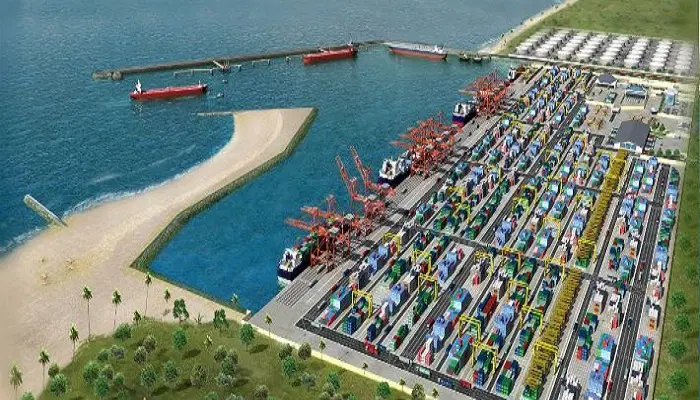
Vice President Shettima promises faster cargo clearance, reduced costs, and enhanced efficiency across Nigerian ports…
The Federal Government is ramping up efforts to implement the National Single Window (NSW) at Nigeria’s ports by 2026, a move aimed at streamlining port documentation, reducing human contact, and boosting transparency in cargo clearance operations.
Speaking at the second meeting of the Ports and Customs Efficiency Committee at the Presidential Villa, Vice President Kashim Shettima described the initiative as a “game changer” for port operations, with the ambitious goal of cutting average cargo clearance time to under seven days.
“By the end of 2026, we aim to make Nigerian ports rank among the top three most efficient trade gateways in Africa,” Shettima said.
The Vice President highlighted the high cost of clearing goods in Nigeria, which he said is 30% higher than regional counterparts, and noted that cargo dwell times currently sit at 475% above the global benchmark, a situation that discourages investment, raises consumer prices, and weakens export competitiveness.
Streamlining Operations Through Collaboration
Shettima directed the Nigerian Ports Authority (NPA), Nigerian Customs Service (NCS), NAFDAC, SON, and other relevant agencies to develop a robust weights and measures framework to ensure fairness in trade and protect consumers from fraud.
The Vice President also revealed that a pending Executive Order on Joint Physical Inspection, awaiting President Bola Tinubu’s approval, is expected to address long-standing operational bottlenecks. He stressed that the era of agencies working in isolation is over.
“No reform succeeds without ownership. Inter-agency rivalry must give way to collaboration. Our efficiency depends on how well we work together,” Shettima said.
Driving Efficiency and Global Competitiveness
Zahrah Audu, Director-General of the Presidential Enabling Business Environment Council (PEBEC), pointed out that inefficient port operations have a direct impact on Nigeria’s Ease of Doing Business ranking. She urged stakeholders to continue improving operational efficiency and adopt technology-driven solutions.
Abubakar Dantsoho, Managing Director of the Nigerian Ports Authority, emphasized that boosting competitiveness requires synergy, technology adoption, infrastructure upgrades, and human capacity development. He noted that the Customs and Ports Efficiency Committee has already made strides with joint inspections and coordinated agency operations.
The Vice President’s directives reflect a commitment to creating a unified, efficient, and transparent port ecosystem, which officials say will not only enhance trade but also ensure Nigeria’s ports remain globally competitive.



